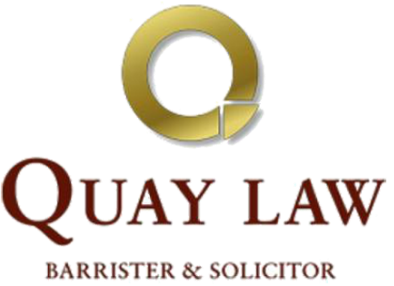Auckland Conveyancing – The Process of Buying a Home
 Conveyancing – The Process of Buying a Home – May 2016
Conveyancing – The Process of Buying a Home – May 2016
Property Law – Published article by Auckland conveyancing lawyer, Ian Mellett
Published property law nz article by Ian Mellett (Conveyancing)NZ Home Owners Magazine Buying or selling a home is one of the biggest financial commitments you will ever make. There are several relatively complicated stages to negotiate and there are a number of things to look out for.
In New Zealand there are several ways to sell and buy a home, including: auction, tender, advertised/ fixed price or by negotiation.
Regardless of the method used, you should always have a written sale and purchase agreement.
Preparing an offer
Before you submit an offer there are a number of key details that need to be determined:
- The name(s) of the vendor(s) and purchaser(s).
- The address of the property.
- The type of title (freehold, leasehold etc).
- The chattels that are to be sold with the property (e.g. whiteware, drapes, television aerial)
- The price.
- The rate of interest that the purchaser must pay on any overdue payments.
- The deposit that the purchaser must pay.
- The date on which the agreement will become unconditional if there are conditions, e.g. title approval, finance, LIM report, builder’s report, valuation, sale of existing home.
- The settlement date (the date the purchaser pays the remainder of the amount for the property, usually the day when the purchaser takes possession of the property).
- Any conditions the purchaser wants fulfilled before the contract is agreed.
Condition of property.
The Sale and Purchase Agreement
Have your conveyancing lawyer review the sale and purchase agreement prior to executing (signing) same, as this will afford you the opportunity to make any suggested amendments. It is extremely important to remember that once you have signed the agreement, a legally binding contract comes into force with the ensuing legal obligations.
Once your offer is submitted to the vendor, it will either be accepted, rejected or you will embark on negotiations with the vendor. It is usual for those negotiations to be handled by the real estate agent with any amendments to the contract preferably being approved by your property lawyer. Every time the Agreement for Sale and Purchase of Property is amended and submitted to the other party it is, in law, the rejection of the previous offer and the making of a counter-offer. When the document is accepted without amendment and signed then the contract is formed.
It is important to note that the real estate agent works for and is paid by the vendor. The agent must therefore carry out the vendor’s instructions (as set out in the agency agreement) and act in the interests of the vendor. Agents do also have clear responsibilities to purchasers even though they are representing the seller.
Once the property contract has been signed and dated, the real estate agent sends signed copies to the solicitors for the vendor and purchaser. The purchaser’s conveyancing solicitor will immediately obtain a search of the title and any relevant documents recorded against the title. Copies will then be provided to the purchaser. The general conditions of the standard contract contain provisions allowing a purchaser to object if there are problems with the title.
Can I cancel the property agreement if I change my mind?
Once a contract has been formed, you cannot cancel a sale and purchase agreement just because you have had second thoughts about buying or selling the property concerned.
In general, once you have signed a sale and purchase agreement and the conditions set out in it have been met, you will have to go ahead with the sale/purchase of the property.
Satisfying Conditions as set out in the Property Sale and Purchase Agreement
At the same time as the title is searched, the purchaser is normally required to take steps to fulfill any other conditions of the contract. For example, if the contract is subject to finance or a valuation report, then steps should be taken to satisfy these conditions. The purchaser should also at this time check with the Council to ensure that all Council requirements have been satisfied and in particular that any additions or alterations have obtained the requisite consents. Many purchasers obtain a LIM (Land Information Memorandum) report from the Council. The LIM sets out information the Council has on the property. Councils make a charge for providing LIMs.
A condition of the contact may be a pre-purchase inspection report. This report should identify any items in the property that require attention. It is unlikely that a home will come though a property inspection with a clean report as maintenance on an existing home is always required. However, a property report allows you to make an informed decision prior to proceeding with the purchase of the property
We recommend you use a certified inspector for your potential pre-purchase inspection report.
Confirmation
Once the purchaser is satisfied that the conditions can be fulfilled, the purchaser’s conveyancing solicitor confirms to the vendor’s conveyancing solicitor that the contract is unconditional. Alternatively, should a condition not be satisfied then the purchaser’s solicitor should notify the vendor’s solicitor that the contract is at an end.
Post Confirmation and preparation for Property Transfer
Once the contract has been confirmed we commence updating the Land Information New Zealand website (Landonline) for managing the transfer of the property’s title with the details of your transaction. Relevant documents are completed on behalf of parties through the completion of signed Authority and Instruction forms (A&Is) which enables both the vendor’s and the purchaser’s solicitors to make the necessary changes to the title, on the day of setlement, of the property being purchased. The vendor’s lawyer prepares a settlement statement (showing debits and credits) which adjusts the rates on the property as at the proposed settlement/possession date.
In addition, your conveyancing lawyer / solicitor will:
- arrange for the execution of the A&I’s – which transfers ownership to you.
- check that the rates and other costs are paid and up to date.
- check that you have arranged insurance for your new home from settlement date.
- carry out a ‘guaranteed search of title’ from the Land Information Office. This protects you from anyone else having a claim over your property.
- make arrangements with you and the bank for advancing of your loan and payment of the remaining share of the purchase price (excluding your deposit).
Loan and Mortgage Documentation
The mortgage is a legal document that gives your lender security for the money that you owe them.
If the purchaser is borrowing money from a financial institution, then following confirmation and before settlement all loan and mortgage documents need to be completed by the purchaser. Mortgage instructions are sent by the lending institution to the purchaser’s solicitor for preparation of the security documents and execution. The details of the mortgage are added to Landonline by the solicitor. Once the documentation has been completed, the purchaser’s solicitor completes a certificate requesting the financial institution to draw down the loan on the settlement/possession date.
Insurance Cover
The purchaser needs to arrange insurance cover for the property from the possession / settlement date.
Pre Settlement Property Inspection
During the normal course of events prospective property purchasers visit a house they intend to purchase and if the property is to their liking, enter into an Agreement forSaleand Purchase.
Once the Agreement becomes unconditional, the purchaser is entitled to carry out a pre-settlement inspection in order to avoid any unpleasant surprises. Examples could be a window broken, light fittings missing, a burn mark on the carpet, etc. Obviously this damage must have occurred after the date on which the agreement was signed.
The pre-settlement inspection is normally arranged by the real estate agent, and must be carried out no later than the day before settlement is scheduled to occur. During this inspection the property purchaser should ensure that the property is in the same condition as it was on the day that the contract was signed. If any damage has occurred since the signing of the Agreement forSaleand Purchase, the purchaser can request that the problem be remedied or alternatively could ask for compensation.
Depending on the situation the purchaser’s solicitor could negotiate with the vendor’s solicitor to retain an amount in their trust account pending the satisfactory correction of the identified damage.

Property Possession / Settlement
The possession date, usually the same as the settlement date, is the day that you will take possession of the house. It is also known as the property settlement date because it is the day you pay for the house and this process of transferring money is known as settlement.
On the possession/settlement date, the purchaser’s solicitor receives the loan advance from your lender and any cash contribution from the purchaser and pays over the full settlement figure to the vendor’s conveyancing lawyer by way of a bank cheque or electronic transfer. This must be completed before 4pm on the day of settlement. The purchaser is entitled to vacant possession (and handing over of the keys) of the property as soon as moneys have been paid over but not before.
In exchange for the property settlement moneys, title passes to the purchaser by means of the release of the Landonline documents from the vendor’s solicitor to the purchaser’s solicitor. The title is updated immediately with the discharge of the existing mortgage, the transfer of title to the purchaser and the new mortgage registered. A copy of the updated title is provided to the purchaser as part of the purchaser’s solicitor’s settlement report. Following settlement, the vendor’s solicitor notifies the relevant Council with details of the names of the new owners of the property.
KiwiSaver first Home WithDrawal
Buying your first property, particularly in the Auckland market, can be an expensive and difficult exercise. That is where KiwiSaver can play a role. You may be able to withdraw some of your KiwiSaver savings ( provided you leave a minimum balance of $1,000 in your account) to put towards purchasing your home.
You must have been a KiwiSaver member for three or more years to qualify for the first home withdrawal. Importantly, you can only withdraw money to purchase your home, and not an investment property. In addition, you cannot have owned your own property before, must not have made a withdrawal to buy a home and the home you are buying must be in New Zealand.
You will need to apply to your KiwiSaver provider if you want to make a first home withdrawal. It is also preferable to involve your solicitor at an early stage in this process as the forms contain a statutory declaration which needs to be signed in front of a Solicitor. Not doing so will delay the process.
Our conveyancing lawyers at Quay Law regularly deal with KiwiSaver first home withdrawal applications as part of the property purchasing process. Feel free to contact our lawyers at Quay Law |Auckland.
General Conveyancing Information
Whilst there is a process to follow when it comes to property conveyancing transactions, there is skill and experience required to avoid potential problems. You need to have confidence in those parties representing you to ensure an excellent result.
This article has been written as a guideline in order to highlight the process involved with purchasing a home. Should you need any assistance in relation to your property purchase or NZ Property Law, please contact Auckland Property Lawyer, Ian Mellett at Quay Law Barrister and Solicitor.
Legal Blog : www.aucklandlawfirm.co.nz
Recent News
Our legal tips are provided by the Auckland lawyers and conveyancing specialists at Quay Law (New Zealand). These articles cover a range of legal topics and news worthy articles.
- The Hidden Dangers of Unconsented Works When Buying or Selling a House in NZ
Introduction: Picture this: You’ve found the perfect house, the one that ticks all the boxes – the dream home you’ve been searching for. But wait! Before you get carried away with visions of cozy nights by the fireplace, there’s something you need to know. Unconsented works can turn your […]
- Tony Alexander: FOMO’s back – why Auckland is primed to lead the next house price surge
Original Source – ONEROOF.CO.NZ – 19 July 2023 Article repurposed for our blog. ANALYSIS: Each month, I / Tony Alexander conduct five surveys among my 31,000 subscribers of ONEROOF to gain firsthand insights into the economy, particularly the housing market. This week, I ran a survey […]
- Property Reports: The Lowdown
Knowledge is essential when it comes to investing in real estate. Making an informed purchasing decision requires knowledge of the potential home’s condition, history, and risks. Property reports come into play in this situation. A property report is a compilation of various documents that […]




